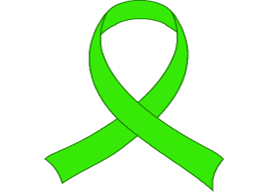
June 09, 2011

Lymphoma Lime
As family and friends got involved I learned, too, after a lifetime of blessedly excellent health, one of human nature’s darker facts.
Having a possibly terminal illness puts one at the center of a drama, and I think there is an unhealthy but undeniable satisfaction—pleasure, even—in perceiving oneself to be a drama’s leading actor. “He wants to be the groom at every wedding and the corpse at every funeral,” someone said of Theodore Roosevelt. Who doesn’t?
However, a few decades’ experience of life accustoms most of us to the understanding that we shall never get to play Hamlet. With luck we may understudy for Rosencrantz or Guildenstern, but a place at the very center of life’s drama will not be vouchsafed to us.
Then comes the doctor’s thoughtful frown, the ambiguous test result, the calls from hospital and lab, and suddenly we’re in the limelight. The valetudinarian impulse is easy to understand. For those of us not fated to win awards, prizes, fortunes, or elections, a life-threatening illness brings as much attention—as much of a taste of fame—as we shall ever get.
My particular drama turned out to be not so much Hamlet as Much Ado About Nothing. By the time we got to the decision tree’s end, it had emerged that my particular strain of CLL was the most diffident one. It wasn’t even worth the trouble of giving me any treatment, said the oncologist. “We’ll just watch it. Come see me every three months. But there’s a good chance you’ll die of old age.”
Having watched both my parents die of old age, I would prefer to die of almost anything else, or at least of anything else in the Blighty One category. There didn’t seem to be any point in saying this out loud, though, so I went home, took a couple of stiff drinks, and got on with some work.
The following week, that Big-C cover story in TIME appeared, further damping down my dreams of terminal drama. The proper name for my condition, I learned, may be “incidentaloma.” The business of testing and diagnosis has a fractal quality to it: The more of it you do, the more stuff you see. Scanning and diagnostic techniques may advance to the point where we shall find that everyone has cancer.
All but some tiny percent of us will be told, as I was, that no treatment is required, only watchfulness. It sounds like a wonderfully undemanding jobs program for oncologists. The consolation for the rest of us is that we shall all be entitled to wear twisty colored ribbons.